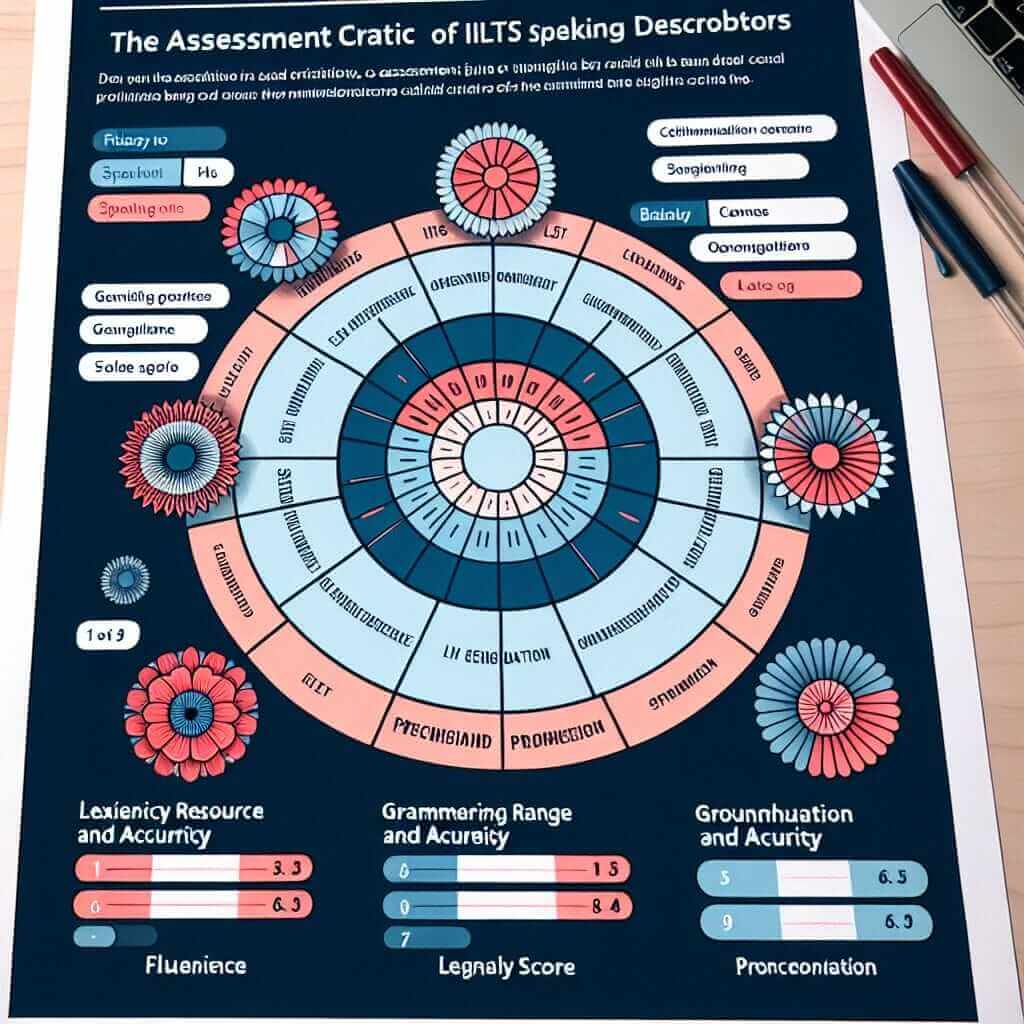As an IELTS instructor with over 20 years of experience, I understand the apprehension surrounding the IELTS Speaking test. Many candidates, understandably, feel nervous about speaking in a foreign language and being judged on their ability. However, understanding how the test is graded can significantly alleviate this anxiety.
This article delves into the IELTS Speaking band descriptors, providing insights into what examiners look for and offering valuable tips to help you excel in this section.
Demystifying the IELTS Speaking Band Descriptors
The IELTS Speaking test assesses your spoken English proficiency across four key criteria:
1. Fluency and Coherence: This criterion evaluates your ability to speak fluently and coherently. Examiners assess:
- Speaking Speed: Are you speaking at a natural pace, not too fast or too slow?
- Hesitation: Do you hesitate frequently or struggle to find the right words?
- Connectors: Do you use discourse markers (e.g., furthermore, however, on the other hand) to link your ideas smoothly?
- Repetition: Do you repeat the same phrases or words excessively?
2. Lexical Resource: This criterion measures the range and accuracy of your vocabulary. It considers:
- Vocabulary Range: Do you use a variety of words and phrases, avoiding repetition?
- Precision: Do you choose words that accurately convey your intended meaning?
- Paraphrasing: Can you effectively express yourself using different words or phrases when you can’t recall a specific term?
3. Grammatical Range and Accuracy: This criterion examines your ability to use a range of grammatical structures accurately. Examiners look for:
- Grammatical Structures: Do you use a mix of simple and complex sentences (e.g., conditional clauses, relative clauses)?
- Accuracy: How frequently do you make grammatical errors? Are these errors minor or do they hinder understanding?
4. Pronunciation: This criterion assesses how clearly you pronounce words and phrases. It encompasses:
- Individual Sounds: Can you pronounce individual English sounds clearly?
- Word Stress: Do you place the stress on the correct syllable in multi-syllabic words?
- Intonation: Does your voice rise and fall naturally, reflecting the meaning and emotions in your speech?

Decoding the IELTS Speaking Band Scores
Each of the four criteria is weighted equally, and your overall speaking band score is an average of your performance across these criteria.
Here’s a simplified overview of the band descriptors:
-
Band 9 (Expert User): You demonstrate a native-like command of English, speaking fluently, accurately, and with sophisticated vocabulary. Your pronunciation is clear and natural.
-
Band 7 (Good User): You can communicate effectively, despite occasional inaccuracies. You demonstrate a good range of vocabulary and grammatical structures, and your pronunciation is generally clear.
-
Band 5 (Modest User): You can communicate basic ideas but may struggle with more complex language or unfamiliar topics. You make frequent grammatical errors, and your pronunciation may be difficult to understand at times.
Essential Tips to Enhance Your Speaking Score
-
Embrace Regular Practice: The key to acing the IELTS Speaking test, like any other skill, is consistent practice. Engage in mock speaking tests with a teacher or a language partner to receive feedback and identify areas for improvement.
-
Expand Your Vocabulary Strategically: Focus on learning vocabulary related to common IELTS themes such as education, technology, environment, and society.
Use new words and phrases in context to ensure you understand their meaning and usage. -
Master Grammar Fundamentals: While using complex grammar can boost your score, prioritize accuracy over complexity. Ensure you have a solid grasp of basic grammatical structures and can use them accurately.
-
Pay Attention to Pronunciation: Regularly listen to native English speakers and mimic their pronunciation. Record yourself speaking and analyze your pronunciation for areas that need improvement.
Conclusion
Understanding how the IELTS Speaking test is graded can significantly boost your confidence and help you achieve your desired score. Remember to focus on all four assessment criteria, practice regularly, and seek feedback to continuously improve your speaking skills. Good luck!